Faculty Biographies
18–19 June 2021, Virtual Meeting
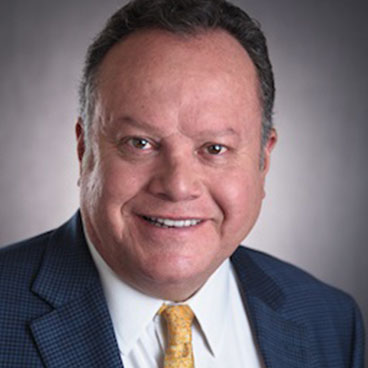
Rafael Fonseca, MD
Mayo Clinic, Arizona
Rafael Fonseca, MD, is the Getz Family Professor of Cancer, professor of medicine, interim executive director of the Mayo Clinic Comprehensive Cancer Center, director for innovation and transformational relationships, and a consultant in the Division of Hematology/Oncology at the Mayo Clinic in Arizona. He earned his MD at Universidad Anahuac, Mexico. He completed a residency in internal medicine at the University of Miami, FL, and a fellowship in hematology and medical oncology at Mayo Graduate School of Medicine, Rochester, MN. He was named a clinical investigator for the Damon Runyon Cancer Research Fund. He is a visiting healthcare fellow at the Goldwater Institute.
Dr Fonseca’s practice has focused on the diagnosis and treatment of plasma cell disorders and leading the multiple myeloma team in its effort to develop a better understanding of the disease and its impact on patients. In his laboratory, Dr Fonseca has led his team of researchers in concentrating on the genetic nature of the clonal cells of plasma cell disorders, myeloma bone disease, prognostic markers, and development of new therapies for the disease.
Throughout his training and career, Dr Fonseca has received numerous awards and honors, including the Damon Runyon-Walter Winchell Clinical Investigator Award, and the International Waldenström Macroglobulinemia Research Award. Most notably, he is a Mayo Clinic Distinguished Investigator, the highest academic distinction given to investigators at his institution. Dr Fonseca holds memberships and serves in positions for organizations such as the American Society of Clinical Oncology, American Society of Hematology, American Association for Cancer Research, and the International Myeloma Society. His research has been funded by the National Cancer Institute (R01, P01, SPORE), the Leukemia & Lymphoma Society, the Multiple Myeloma Research Fund, and the Damon Runyon Cancer Research Fund. Dr Fonseca serves as reviewer and in editorial capacities for medical publications including Blood, Lancet, Nature Medicine, Cancer Cell, Leukemia, and the New England Journal of Medicine, among others. He has given many national and international presentations as a visiting professor, and has authored numerous articles (over 300), book chapters, editorials, abstracts, and letters.
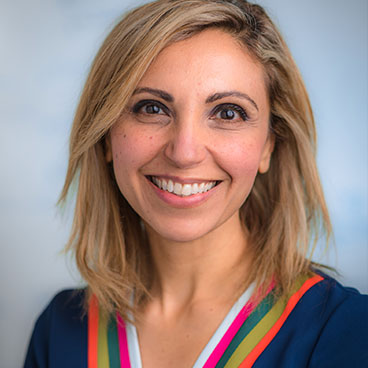
Irene Ghobrial, MD
Dana-Farber Cancer Institute
Dr Irene Ghobrial is currently a professor of medicine at Dana-Farber Cancer Institute (DFCI), Harvard Medical School, and the Lavine Family Chair for Preventative Cancer Therapies. She is also an associate member of the Broad Institute of the Massachusetts Institute of Technology and Harvard University. She is director of the clinical investigator research program at DFCI, director of translational research in the Department of Multiple Myeloma, director of the Center for Prevention of Progression, and co-leader of the Dana-Farber/Harvard Cancer Center lymphoma and myeloma program. Dr Ghobrial received her MD from Cairo University, Egypt. She completed a residency in internal medicine at Wayne State University, Detroit, MI, and then moved to the Mayo Clinic in Rochester, MN, to train as a hematology-oncology fellow.
Dr Ghobrial’s laboratory and clinical studies focus on identifying and developing effective therapeutic interventions for precursor conditions of myeloma (monoclonal gammopathy of undetermined significance and smoldering multiple myeloma). This can only be achieved by defining genomic and epigenomic markers that are associated with disease progression, microenvironmental changes that affect tumor progression to myeloma, and mechanisms of immune evasion in disease progression. The focus of her research is to identify novel biomarkers of disease progression and help develop potentially curative therapies in the pre-malignant phase that exploit the immune microenvironment in the bone marrow. She developed a large, patient-empowering observational study for these precursor conditions (the PCROWD study) and recruited over 3,000 patients. She is also the principal investigator of the first screening study for multiple myeloma in the US, the PROMISE study. This trial is currently screening 30,000 individuals at high risk of developing myeloma, including those of African American descent or those with first-degree relatives with myeloma.
Dr Ghobrial is a well-funded investigator who received continuous National Institutes of Health funding over the last 12 years and foundation collaborative grants, including the Leukemia & Lymphoma Society SCOR program and Stand Up To Cancer grants dream team. She has over 250 publications in many prestigious journals and has presented and led many national and international meetings on myeloma. She is the recipient of the Robert A. Kyle Award for Waldenström’s macroglobulinemia, the Ken Anderson Young Investigator Award, and the Mentor of the Year Award at DFCI.
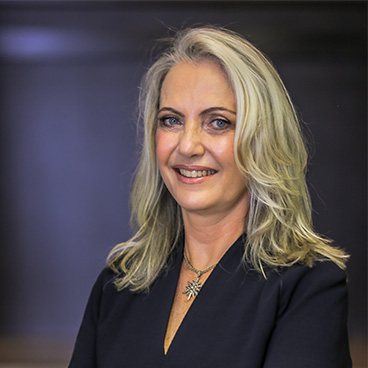
Vania Tietsche de Moraes Hungria, MD, PhD
São Germano Clinic in São Paulo, Brazil
Vania Tietsche de Moraes Hungria is an associate professor of hematology and oncology at Santa Casa Medical School and clinical director of the São Germano Clinic in São Paulo, Brazil. She received her medical degree and training from Santa Casa of São Paulo, and graduate degrees from the University of São Paulo.
Since the initiation of her medical career, Prof Hungria has focused on plasma cell disorders, mainly multiple myeloma. She has conducted national clinical trials, has published on these topics, and has participated in multicenter international clinical studies.
Prof Hungria has served during the past 4 years on the International Myeloma Society board, with main responsibilities in the membership and awards subcommittees. She is a member of the International Myeloma Foundation Scientific Advisory Board and the International Myeloma Working Group. As a co-founder and chair of the International Myeloma Foundation Latin America Scientific Advisory Board, she has contributed to the education of health professionals and patients. Prof Hungria is also a co-founder and coordinator of the Brazilian Multiple Myeloma Group (GBRAM).
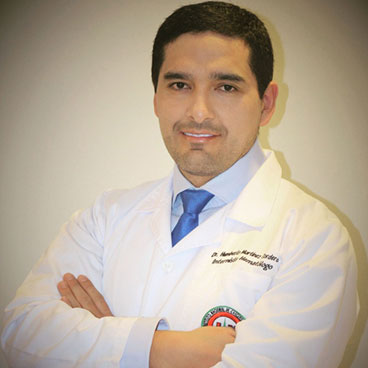
Humberto Martínez Cordero, MD
National Cancer Institute, Bogotá, Colombia
Dr Humberto Martínez-Cordero is head of the Hematology and Bone Marrow Transplant Unit and president of the ethics committee of the National Cancer Institute, Bogotá, Colombia. He studied medicine at the University of Caldas in Colombia, internal medicine and hematology at the National University of Colombia, and is currently a candidate for a master’s degree in epidemiology at the University of El Bosque, Colombia. He has been accepted as a member of the multiple myeloma program at the University of Toronto and Princess Margaret Cancer Centre in Canada.
Dr Martínez-Cordero’s research focus is multiple myeloma and associated plasma cell neoplasms. His current research centers on the epidemiology of multiple myeloma in Colombia, multiple myeloma and COVID-19, and multiple myeloma in younger populations, especially patients under 40 years of age.
Dr Martínez-Cordero is currently a member of the steering committee of the Colombian Association of Hematology and Oncology and of the Latin American Multiple Myeloma Study Group, and an international member of the American Society of Hematology.
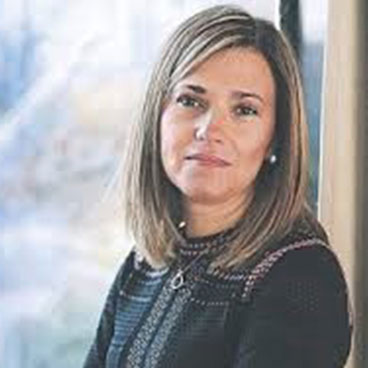
María-Victoria Mateos, MD, PhD
University of Salamanca
María-Victoria Mateos, MD, PhD, is a consultant physician in the Hematology Department and associate professor of medicine at the University of Salamanca, Spain. She is director of the myeloma program and coordinates the clinical trials unit in Salamanca’s University Hospital Hematology Department. She received her medical degree from the University of Valladolid in Spain, and completed a residency in hematology at the University Hospital of Salamanca, where she also completed a doctoral degree.
Dr Mateos serves as coordinator of the Spanish Myeloma Group, with direct involvement in the design and development of clinical trials. She has coordinated many clinical studies, especially in the smoldering myeloma setting, and these trials have profoundly influenced current options for the management of these patient populations.
Dr Mateos is a member of the International Myeloma Working Group, the International Myeloma Society (IMS), the European Hematology Association (EHA), and the American Society of Hematology (ASH). Among her invited presentations, she has contributed to the educational sessions of EHA 2012, ASH 2013, the American Society of Clinical Oncology (ASCO) 2015, EHA 2016, and ASCO and ASH 2017. She served on the ASH Scientific Committee on plasma cell diseases from 2015–2019 and on EHA’s Scientific Program Committee and Advisory Board from 2013–2020, and was chair of the Scientific Program Committee in 2019. She was a councilor on the EHA Board from 2015–2020, a member of the Steering Committee for the Society of Hematologic Oncology, a member of the IMS board, and a member of the European School of Haematology Scientific Committee. She received the Brian G.M. Durie Award in 2019 recognizing excellence in myeloma research. Dr Mateos has published over 250 original papers in international journals.
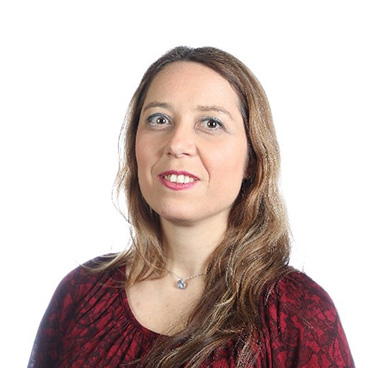
Natalia Paola Schütz, MD, MS
Instituto Universitario del Hospital Italiano de Buenos Aires, Argentina
Dr Natalia Paola Schütz is an assistant professor in the Department of Internal Medicine at the Instituto Universitario del Hospital Italiano de Buenos Aires in Argentina (IUHI). She is a clinician and clinical investigator with a focus on multiple myeloma and malignant hematology. She completed her medical degree at Universidad Favaloro and a postgraduate degree in internal medicine and hematology at the Universidad de Buenos Aires. Dr Schütz completed her residency at the Hospital Italiano de Buenos Aires and a fellowship in hematology and bone marrow transplantation at the Fundación para Combatir la Leucemia. After completing her training, she joined the faculty of the Hospital Italiano de Buenos Aires and currently serves as attending physician and associate researcher in the Hematology Division. Dr Schütz also received a Master of Science in molecular biology of cancer from the Spanish National Cancer Research Center and a Master of Clinical Research from IUHI. She is board certified in internal medicine, hematology, and bone marrow transplantation, and is an investigator on several clinical trials.
Dr Schütz’s research interests are in multiple myeloma and malignant hematology. She has conducted multiple clinical trials and real-world studies and has several publications in the field. She serves on the Research Council at the Hospital Italiano de Buenos Aires and the Scientific and Research Committee of the Argentina Society of Hematology. She is a member of the International Myeloma Working Group and the Grupo Latinoamericano de studio de Mieloma Múltiple. Currently she is working on several research projects with the Argentinean Multiple Myeloma Study Group and other international collaborative efforts.
Dr Schütz also participates in the American Society of Hematology Clinical Research Training Institute for Latin America, currently working as senior faculty, and is in charge of the fellowship program in hematology at her center.

Keith Stewart, MB, ChB, MBA
University of Toronto, University Health Network, Mayo Clinic
Dr Keith Stewart is Vice President, Cancer, at University Health Network in Toronto, ON, Canada, and medical director of the Princess Margaret Cancer Centre. He is vice-president of Toronto Central South Regional Cancer Program, Ontario Health (Cancer Care Ontario), and holds the Richard H. Clark Chair in Cancer Medicine. He has served in several healthcare leadership roles across both research and clinical practice in Toronto and at the Mayo Clinic, where most recently he was director of the Center for Individualized Medicine. Dr Stewart earned his medical degree at Aberdeen University Medical School, UK, and an MBA degree at the Ivey Business School, University of Western Ontario. He completed an internship at the Glasgow Royal Infirmary, UK; a residency in internal medicine at Queens University, Kingston, ON; a fellowship in hematology at the University of Toronto; and a fellowship in research at New England Medical Center in Boston.
Dr Stewart’s research focuses on the biology, genomics, and individualized treatment of multiple myeloma. He has over 25 years of sustained national funding for a laboratory research program in genomics and biology of myeloma, and has led numerous clinical trials of novel therapeutics for this disease from first-in-man to large practice-changing studies. He consistently publishes in high-impact scientific journals and holds editorial and reviewer responsibilities for several prominent publications, such as serving as an associate editor of Blood and ASH Clinical News. A frequently invited speaker, Dr Stewart gives presentations on his research both domestically and internationally, and has authored over 350 journal articles, abstracts, and other written publications.
Dr Stewart has received numerous awards and honors, among them the Scott-Whitmore Chair in Hematology and Gene Therapy, conferred by the University of Toronto. He holds memberships with numerous professional organizations, including the Royal College of Physicians and Surgeons of Canada, National Cancer Institute, and American Society of Clinical Oncology. He has served on the advisory and medical or scientific boards of many private and public institutions including currently as a non-executive board member of Genomics England.
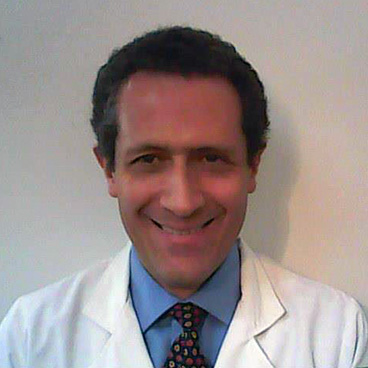
Jorge Vela-Ojeda, MD, PhD
Hospital de Especialidades CMN La Raza, IMSS, Mexico City, Mexico
Prof Jorge Vela-Ojeda is a hematologist and head of the Department of Hematology, Hospital de Especialidades CMN La Raza, IMSS, Mexico City, Mexico. He completed his training in surgery at Universidad Michoacana de San Nicolás de Hidalgo; in hematology at the National Autonomous University of Mexico; and earned his PhD from the National School of Biological Sciences, Instituto Politécnico Nacional (IPN), Mexico City. Previously, Prof Vela-Ojeda was head professor of hematology at Universidad Nacional Autónoma de México and at IPN. He also led the bone marrow transplant unit and the Department of Hematology at Hospital de Especialidades CMN La Raza.
Prof Vela-Ojeda’s research has been published in numerous peer-reviewed journals, including Journal of Clinical Oncology, Bone Marrow Transplantation, British Journal of Haematology, Annals of Hematology, Leukemia & Lymphoma, Leukemia Research, and International Journal of Hematology. He is the author of 4 books, on multiple myeloma and hematopoietic cells.





